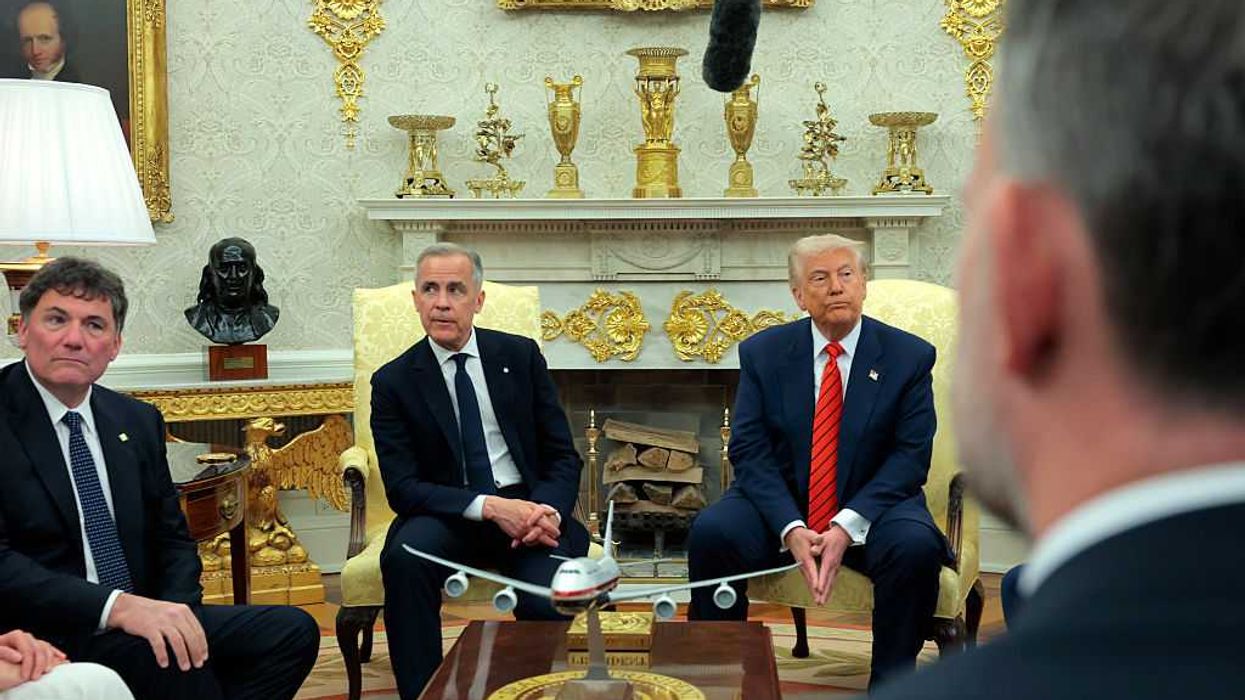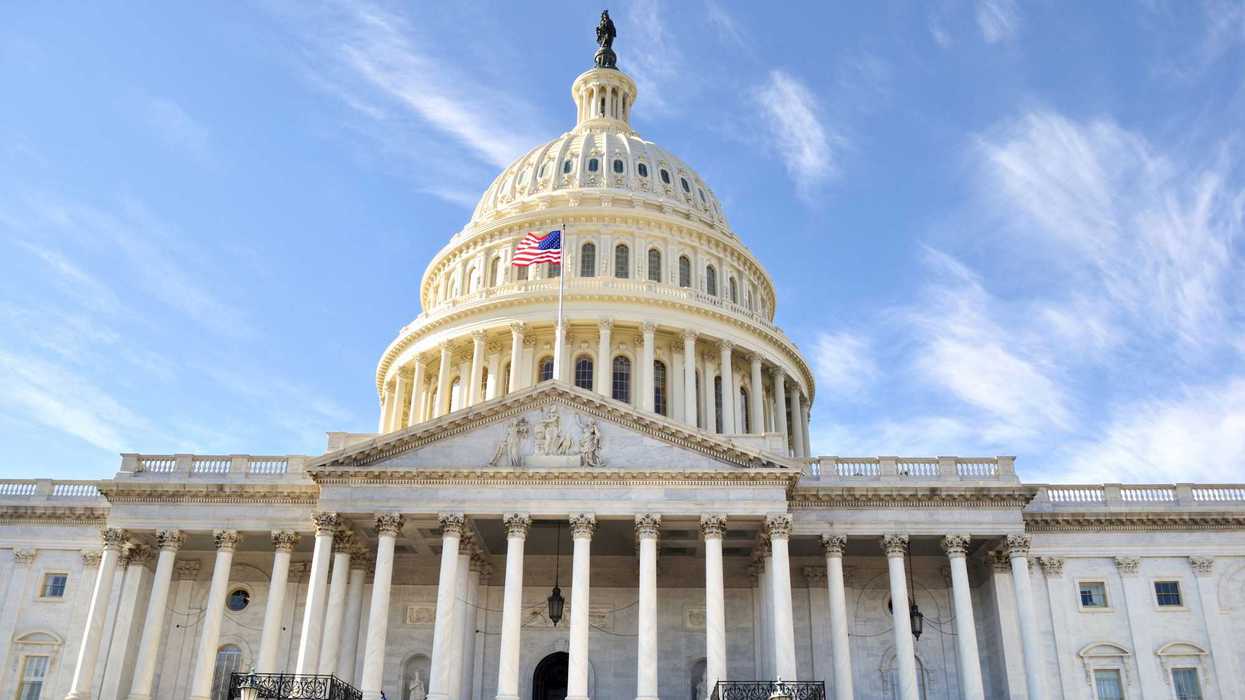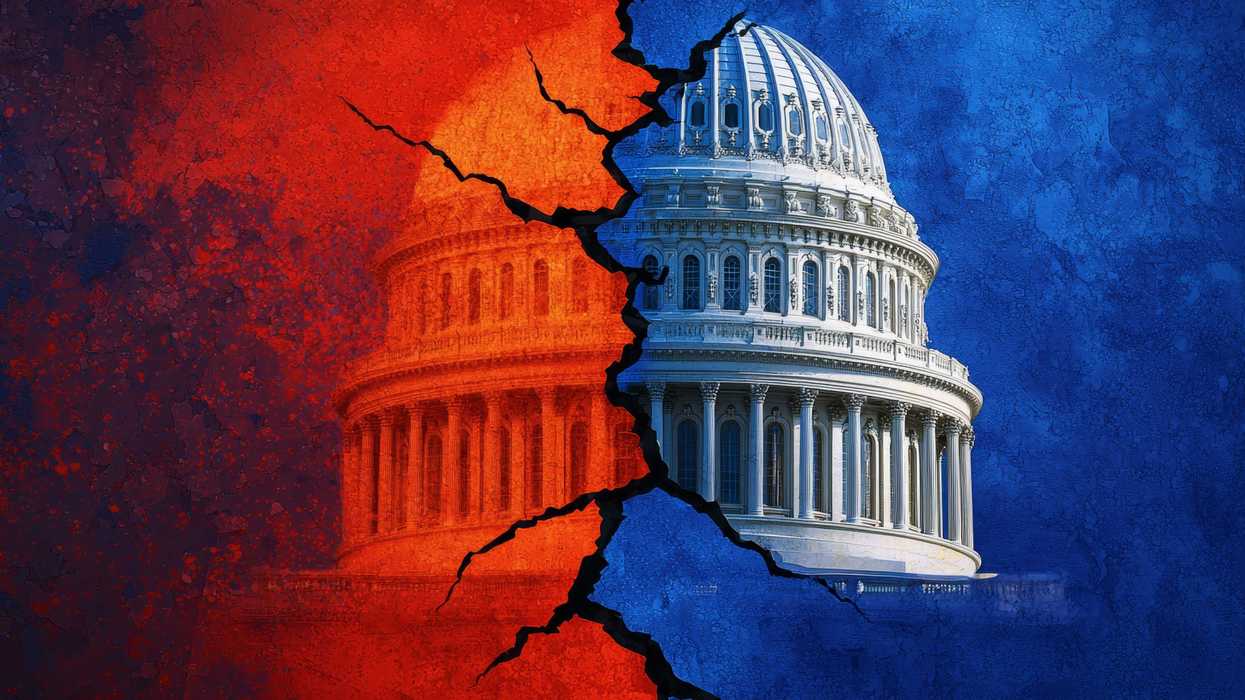VANCOUVER, British Columbia — As the Los Angeles Dodgers face off against Canada’s Toronto Blue Jays for the World Series, the first couple of games featured an advertisement that shot around the world. All because when U.S. President Donald Trump noticed it, he reacted like an on-again/off-again girlfriend had just keyed his car.
“The Ronald Reagan Foundation has just announced that Canada has fraudulently used an advertisement, which is FAKE, featuring Ronald Reagan speaking negatively about Tariffs,” Trump wrote online, announcing the termination of “all trade negotiations with Canada.”
Well, I guess you could say that it’s “fake” in the sense that the late President Reagan isn’t currently in a position to comment directly on the tariffs that Trump is throwing up all over the place to protect the US market from America’s allies. Or as Trump calls it: “national security.”
What the Canadian province of Ontario did was use an unedited voiceover of Reagan from 1987 in which he denounces mass tariffs as detrimental to the American economy and job market.
At the time, Reagan was laying the groundwork for the Canada–United States Free Trade Agreement (CUSFTA), spearheaded by the Gipper himself, and ultimately implemented in 1989. The multi-million-dollar ad buy targets Republican states. Reagan’s unedited voice from his original address accompanies visuals of American life, labor and landscapes, before concluding with Reagan filling the screen as he wraps up.
Republican viewers might ask whether such a departure from Saint Ronald’s policies is wise. The Reagan Foundation, focusing on tenuous fair use claims and alleging misuse, seems less concerned with defending the principles Reagan articulated, which speaks volumes.
What is this — a personality cult where even a deceased icon of the Republican Party still valued by many Trump supporters has to show unfailing allegiance to Dear Leader?
Canadians are drawing another lesson from this fiasco. Under Reagan’s free trade policy, Canada initially feared losing its sovereignty through greater economic integration with the U.S. But decades of globalization, guided by neoconservative visions of an American-led economic order, successfully convinced allies that their fates were inseparable from U.S. policy. Trump has revealed the fragility of this arrangement, as his tariffs transform supply chains into leashes.
Canada’s Prime Minister Mark Carney is now scrambling to find other trading partners to fill his dance card, notably in Asia and Europe. Finally. Some of us have only been screaming for years about this need to diversify trade with less conventional partners.
Which would explain why suddenly Canada is turning down the volume on its “foreign interference” beefs with India and China in favor of trade pragmatism. Or “re-engaging,” as Carney put it last week on his first trip to Asia.
But first, he’s going to have to unscrew the work of his predecessor Justin Trudeau’s attempts to curry favor with establishment Washington when he slapped duties on Chinese exports last year, resulting in Chinese tariffs earlier this year that have slammed Canadian beef and canola farmers and fishermen.
Carney has also been crisscrossing Europe, cutting deals to replace the EU’s lost Russian resources — like critical minerals and gas — with Canadian sources.
Trump had bragged about cutting off Germany from its Russian gas supply by sanctioning their joint Nord Stream pipeline project — before it was mysteriously blown up altogether under Biden. More recently, in sanctioning Russian oil giants Lukoil and Rosneft under the pretext of helping Ukraine, the Trump administration has left Germany scrambling for an exemption to maintain operations of the German state’s joint projects with these companies.
It’s the second blow to German industry in less than a week. Trump’s sanctioning of Chinese semiconductor maker WingTech Technologies led to the Netherlands trying to seize control of the company’s local subsidiary, Nexperia, to guarantee Dutch supply. But the chips overwhelmingly come from China. Whoops! The attempted grab resulted in China cutting off exports of those chips to Europe altogether.
Now, some German auto industry analysts estimate a potential implosion of the sector that relies on those chips within a month.
And yet, like an ex who can’t quite stay away, European and Canadian leaders keep returning to Trump’s orbit — even as Canadians and Europeans are divorcing themselves from American imports in favor of domestic alternatives.
Canadians used to fret about becoming America’s 51st state. Now they’re discovering that even without Trump’s threats of annexation, he can still make their globalist leaders dance like a reluctant prom date — and that Europeans can still be dragged along on the dance floor, too.
Somewhere, the Gipper must be polishing his cowboy boots and wondering how his trade deal has ultimately given rise to a chaotic international square dance, led by a guy who steps on everyone’s feet, but somehow still manages to keep them all circling back.
Rachel Marsden is a columnist, political strategist, and host of independently produced talk shows in French and English. Her website can be found at http://www.rachelmarsden.com.)



















 Mayor Ravi Bhalla. Photo courtesy of the City of Hoboken
Mayor Ravi Bhalla. Photo courtesy of the City of Hoboken Washington Street rain garden. Photo courtesy of the City of Hoboken
Washington Street rain garden. Photo courtesy of the City of Hoboken
